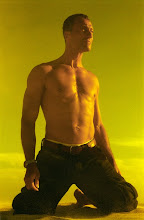Raison d’être
Today, Paul gave us a very interesting and thought provoking lecture on the ethics of photojournalism. Not so much on the ethics on how to behave ethically as a photojournalist, more on why we are doing what we are doing as photojournalists or documentary photographers. What is the raison d’être of what hoards of previous and active photojournalists are doing? This essentially touches on why am I aspiring to become a documentary photographer? What is my very personal motivation? What drives me to become a documentary photographer? I actually had given this topic a lot of thought before and thought about my motives long and hard before embarking on this course, so I think I have an answer to this question.
But allow me a short digression. At the outset it is interesting to note that a photojournalist/ documentary photographer is in an apparent need to justify her or his existence. Why is that the case? Nobody asks an investment banker why she/he is doing what she/he is doing. At least I was hardly asked this question. People assume it is for the money and the thrill, or for the ego, or for all three of these reasons. And people accept this without penetrating too much. And people assume that people clean floors, stock food in shelves, build cars in factories, or prepare tax returns to make a living and don’t question the motives either of those carrying out these professions. I don’t have the final answer to this question but I assume that since photography is essentially a voyeuristic activity and an activity that often intrudes in other people’s lives, that people would want to know the motives of those photographing.
And obviously there are plenty of altruistic reasons put forward by the likes of James Nachtwey, Sebastiao Salgado or Marcus Bleasdale of why they are photographing wars, famines and exploited miners: to record and document situations that they want to have changed or at the very least brought to the attention of a broader public. They are advocates and they take sides and they essentially want to effect change. There is also the motive of creating evidence and bearing witness to a situation or abuse, with the hope to be able to prosecute and hold accountable those who commit war crimes and genocide – at least post the fact.
I have probably a much simpler reason of why I would like to become a documentary photographer: photography is a medium or a tool for me to explore the world. It is about learning, personal growth and an excuse to participate in situations and to gain access to situations/people’s lives I would otherwise have no access to. Or at least have no reason to want to participate in other people’s lives. At the end of the day, it is about getting a better understanding of this increasingly complex world. And – as surprising as it may sound for you - in that, I am not too far off the motivation that attracted me to my previous job as an investment banker.
But allow me a short digression. At the outset it is interesting to note that a photojournalist/ documentary photographer is in an apparent need to justify her or his existence. Why is that the case? Nobody asks an investment banker why she/he is doing what she/he is doing. At least I was hardly asked this question. People assume it is for the money and the thrill, or for the ego, or for all three of these reasons. And people accept this without penetrating too much. And people assume that people clean floors, stock food in shelves, build cars in factories, or prepare tax returns to make a living and don’t question the motives either of those carrying out these professions. I don’t have the final answer to this question but I assume that since photography is essentially a voyeuristic activity and an activity that often intrudes in other people’s lives, that people would want to know the motives of those photographing.
And obviously there are plenty of altruistic reasons put forward by the likes of James Nachtwey, Sebastiao Salgado or Marcus Bleasdale of why they are photographing wars, famines and exploited miners: to record and document situations that they want to have changed or at the very least brought to the attention of a broader public. They are advocates and they take sides and they essentially want to effect change. There is also the motive of creating evidence and bearing witness to a situation or abuse, with the hope to be able to prosecute and hold accountable those who commit war crimes and genocide – at least post the fact.
I have probably a much simpler reason of why I would like to become a documentary photographer: photography is a medium or a tool for me to explore the world. It is about learning, personal growth and an excuse to participate in situations and to gain access to situations/people’s lives I would otherwise have no access to. Or at least have no reason to want to participate in other people’s lives. At the end of the day, it is about getting a better understanding of this increasingly complex world. And – as surprising as it may sound for you - in that, I am not too far off the motivation that attracted me to my previous job as an investment banker.


0 Comments:
Post a Comment
<< Home